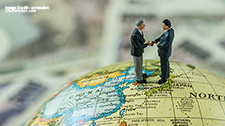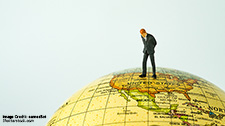North Korea: Nukes, Nationalism & Negotiations
Sangsoo Lee
As South Korea this month takes up the rotating presidency of the United Nations Security Council, concerns over North Korea’s nuclear program grow. Pyongyang’s recent rocket tests, its anticipated third nuclear test, as well as reactions across the region, mean new approaches are needed. New approaches in engagement with Pyongyang are essential and should be immediate to prevent nationalist sentiments from escalating the issue to unmanageable heights for neighboring governments.
Related Publications
-
ISDP Annual Report 2023
ISDP’s Annual Report for the year 2023. We look back on 2023, a year in which tensions and conflicts captured the strategic space in ISDP’s focus areas, making headlines around […]
-
South Korea’s Indo-Pacific Strategy, Atmanirbhar Bharat, and the IPEF: Convergence and Commonality
For some time now, the existing multilateral networks such as those of the United Nations (UN) system have been largely ineffective in providing good global governance and helping create resilience, […]
-
Risk Reduction and Crisis Management on the Korean Peninsula
The situation on the Korean Peninsula is inherently intertwined with the growing instability of the East Asian security environment, where high tensions significantly increase the risk of unintended incidents and armed […]
-
Washington Declaration: Beyond Korea, What it Means for India?
In April 2023, South Korea and the United States released the Washington Declaration to reiterate and upgrade their treaty alliance. In outlining a joint nuclear deterrence strategy, the Declaration reaffirmed […]
-
Taiwan in Tokyo’s 2022 Defense White Paper: Reconfiguring Security Imperatives?
This article was originally posted on the Japan Forum for Strategic Studies (JFSS) website, you can find the article here. A few days prior to the highly controversial visit […]




